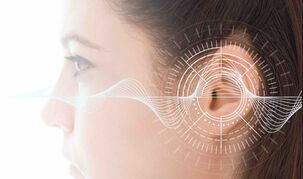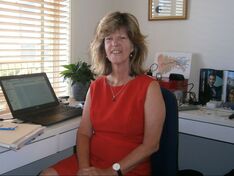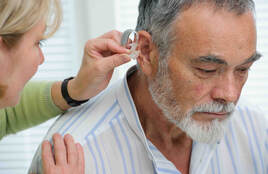Exciting New Support for Hearing Aid Bank in Launceston
Thanks to Northern Tasmanian Waste Management and the Northern Tasmania Development Corporation, Tamar Hearing is currently able to provide fully-refurbished, quality hearing aids to individuals who might not have been able to afford them previously. A 12 month contract of funding has been won to have donated devices professionally serviced and restored to new condition. To the best of our knowledge, this is the first project of this kind in Australia.
Hearing services in Australia do not come under Medicare. They are funded through the Commonwealth Hearing Services Program and funding is restricted to children up to the age of 26 years, those receiving a pension and veterans. Individuals with profound hearing loss may also receive government funding through the National Disability Insurance Scheme (NDIS).
So, what happens to people with impaired hearing between 27 years of age and retirement? Well, they’re on their own!
Audiologists, worldwide, work hard to encourage people to look after their hearing. In the course of our busy daily lives, our delicate and immensely complex hearing systems can be assaulted by loud noise, chemicals, physical traumas and inadequate blood supply. Some people are genetically more susceptible to hearing loss. For others, the damage is a result of a toxic mix of ear-damaging factors. Once the hair cells in the inner ear have been damaged, there is no turning back. They do not regrow and further damage can occur.
Clearly, damage limitation is our very best option and, in practical terms, ear protection from excessive noise is the way to go. Well-fitting earplugs and/or quality ear muffs need to be used. Think about machinery at work, power tools at home, guns and rifles, motorbikes and kitchen appliances.
Permanent hearing loss impacts on so many aspects of an individual’s life. Partners and children become very frustrated and relationships can become fractured. Function in the workplace can be affected when communication breaks down. Some people will develop tinnitus (a ringing in the ears) as a result of the inner ear damage. This can affect mood and overall quality of life. For most people, the most frequent complaint is the inability to hear in groups of people which ends taking the joy away from social events.
Hearing aids will not take away the damage to a very finely constructed hearing system. However, they will improve most people’s hearing, making communication with family and friends much better again.
What can you do?
If you have unwanted hearing aids, perhaps they have been upgraded or their owners have passed away, please donate them! We are looking for devices which are no more than five years old – the more recent, the better as technology has improved immensely over the past few years.
If you have concerns about your hearing but have worried about the cost of acting, please contact us! To be eligible for our Hearing Aid Bank devices, you generally need to hold a Health Care Card. However, exceptions can be made for those who are not eligible for Government services. Please think about refugees and casual workers from overseas. Anybody is welcome to phone for a confidential discussion.
Thanks to Northern Tasmanian Waste Management and the Northern Tasmania Development Corporation, Tamar Hearing is currently able to provide fully-refurbished, quality hearing aids to individuals who might not have been able to afford them previously. A 12 month contract of funding has been won to have donated devices professionally serviced and restored to new condition. To the best of our knowledge, this is the first project of this kind in Australia.
Hearing services in Australia do not come under Medicare. They are funded through the Commonwealth Hearing Services Program and funding is restricted to children up to the age of 26 years, those receiving a pension and veterans. Individuals with profound hearing loss may also receive government funding through the National Disability Insurance Scheme (NDIS).
So, what happens to people with impaired hearing between 27 years of age and retirement? Well, they’re on their own!
Audiologists, worldwide, work hard to encourage people to look after their hearing. In the course of our busy daily lives, our delicate and immensely complex hearing systems can be assaulted by loud noise, chemicals, physical traumas and inadequate blood supply. Some people are genetically more susceptible to hearing loss. For others, the damage is a result of a toxic mix of ear-damaging factors. Once the hair cells in the inner ear have been damaged, there is no turning back. They do not regrow and further damage can occur.
Clearly, damage limitation is our very best option and, in practical terms, ear protection from excessive noise is the way to go. Well-fitting earplugs and/or quality ear muffs need to be used. Think about machinery at work, power tools at home, guns and rifles, motorbikes and kitchen appliances.
Permanent hearing loss impacts on so many aspects of an individual’s life. Partners and children become very frustrated and relationships can become fractured. Function in the workplace can be affected when communication breaks down. Some people will develop tinnitus (a ringing in the ears) as a result of the inner ear damage. This can affect mood and overall quality of life. For most people, the most frequent complaint is the inability to hear in groups of people which ends taking the joy away from social events.
Hearing aids will not take away the damage to a very finely constructed hearing system. However, they will improve most people’s hearing, making communication with family and friends much better again.
What can you do?
If you have unwanted hearing aids, perhaps they have been upgraded or their owners have passed away, please donate them! We are looking for devices which are no more than five years old – the more recent, the better as technology has improved immensely over the past few years.
If you have concerns about your hearing but have worried about the cost of acting, please contact us! To be eligible for our Hearing Aid Bank devices, you generally need to hold a Health Care Card. However, exceptions can be made for those who are not eligible for Government services. Please think about refugees and casual workers from overseas. Anybody is welcome to phone for a confidential discussion.
Careful AssessmentAssessment provides detailed information about the type of hearing loss you have. You may be referred for medical opinion, ear cleaning, cochlear implant discussion, or directed to alternative allied health services.
|
Sound AdviceA referral will be made if appropriate. However, should you be a good potential candidate for hearing aids or assistive listening devices, you will be provided with strong and independent advice about suitable options.
|
Solid Ongoing SupportClients of Tamar Hearing are offered 6 monthly check-ups to monitor the condition of their hearing aids and to ensure that you are happy with your hearing outcomes. Your success and satisfaction is our primary goal.
|








